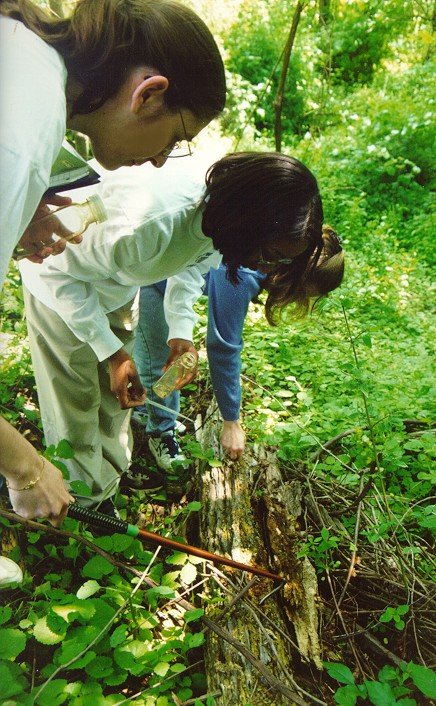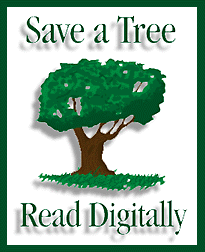- Assignment #1: Send Me an Email!
- task:
- email me a one-line message to my email account (grant@pop1.science.widener.edu) containing: your name, phone number, school where and grade level that you teach, and your home or school mailing address and phone and please send me your preferred email address.
- comments:
- If you do not have an email address, now is good time to GET ONE! There are several FREE services that provide
email addresses (but you will have to read their banner ads...), or since you are a Widener University student you are entitled to get an email address through Widener.
To do this, access the on-line service provided by the Information and Technology Services of Widener University by pressing the highlighted text here --->
Widener - ITS and follow the links to the page on how to apply for a Widener
University email account. Note: The use of email and the creation of email accounts constitutes a service provided by Widener University at no cost to students, faculty, and staff.
Please do this today!
- task:
- (1) to improve your ecological literacy and to better communicate ecological
knowledge to your students. Topics include biodiversity, community ecology,
ecosystem structure and function, conservation biology and human ecology.
Participants will have an improved understanding of ecological processes
and the effects of humans on the natural world.
- (2) to improve your tools at teaching the process of ecological inquiry which is the scientific method, through which natural phenomena are observed, interpreted, and reported. Participants will learn techniques in engaging their students in meaningful research inquiries about ecological concepts outdoors in schoolyards as well as in class using experimental ecosystems. The objective is for you to "do" ecology, i.e. understand the process of ecological inquiry using the scientific method, and the outcomes are designed to meet the new science process skills standards at the state and national level.
- What excites students about learning and teachers about teaching?
- Introduction to Field Ecology and the Rapid Ecological Study.
|
Science Education (ScED) 585, Field Ecology for Teachers
classes meet: Summer 2005, July 11-21
Audience: Elementary, Middle, and High School Science Teachers. Instructor: Dr. Bruce W. Grant, Ecologist, Associate Professor,
Need a brief 2 page printout for a flier or handout about this course? get the *.DOC version at sced585.doc.
Contents of this Page:
|  |
|
Page last updated: 23 February 2005 and has been accessed times since 1 September 2001. I thank Widener University (particularly Harry Augensen, Marc Brodkin, Larry Panek, and Marty Schultz) for server access and technical support. I also thank Dr. Barbara Grove with whom I designed and co-taught this course during the 1990s. |
Current Assignments.Course Objectives.Course Structure.A major component of this course will involve hands-on workshops in how to engage students in the processes of ecological inquiry outdoors on their school grounds and indoors using experimental ecosystems. Participants will learn research techniques in ecological sampling of plants and animals. Participants will learn activities in "schoolyard ecology" available from nationally recognized sources, and by using site visits we will translate these activities to the schoolyards of participants. Participants will also learn classroom activities in experimental ecology and ecosystem management using bottle ecosystems. Participants will also learn important techniques in data management, graphics, statistics, making scientific presentations, and classroom management for facilitating individual and group ecological inquiries. Lastly participants will also improve their understanding of the pedagogical foundations of experiential and inquiry-based learning in cognition and learning theory, which provides a framework for truly scientific teaching in our classrooms. This course will improve your skills at patient and precise data collection, and expose you to new ways of looking at the natural world around you. Your new-found vision will improve your awareness of the important role YOU play in our world and that is the basis of ecological literacy. Since ecology is an inherently field-oriented science, this course will mostly involve field work, mostly using methods of your design, and the analysis of data you collected in the field. Additionally, you have not done science until you have presented your data and interpretations in a way that is usable by your colleagues. Thus, you will be given ample opportunity in this course to present your research results to your peers, and in turn evaluate and constructively criticize their research. The model I will use in this course to accomplish these goals is that of a “bounded open ended research inquiry.” This will involve your working in teams on an ecological research inquiry of your design subject to the constraint that it can be done entirely during the allotted class periods. Through this activity, you will experience the process of ecological inquiry which is critical to your constructing your own understanding of how to teach ecological inquiry. Syllabus (Summer 2005).
My Handouts Available on the Web.Ecological Educational Resources for K-12 Teachers.... under development...
|
